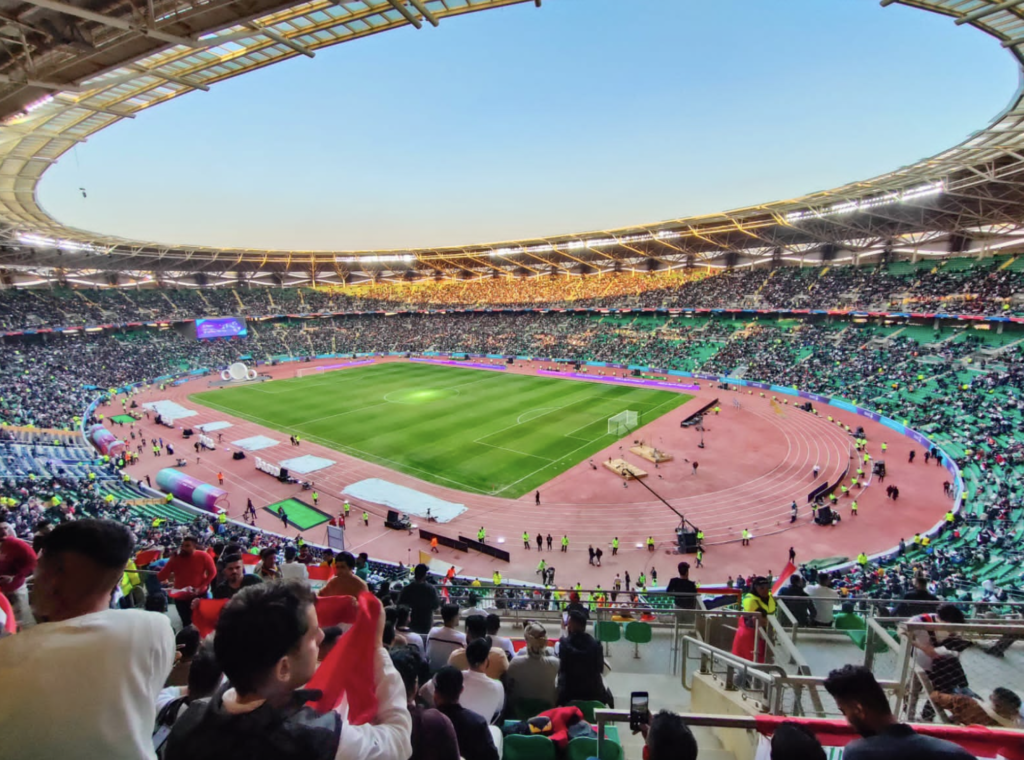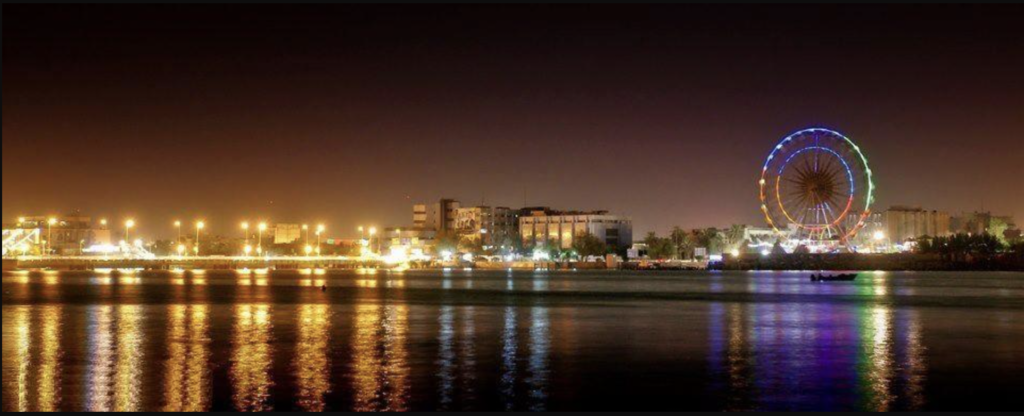The Arabian Gulf Cup and What it Means for Iraq
By: Adam Abdel-Qader / Arab America Contributing Writer

At the start of the new year, Iraq held its second international soccer tournament in Basra after three decades of global isolation. This tournament marked Iraq’s second title win in the Arabian Gulf Cup tournament since 1979. Iraq’s win and hosting of the event is a message to the world of international soccer, the Gulf region, the Middle East, and the rest of the world. The nation is back from its global hiatus and ready to open its doors to the world again.
Global Isolation:
During the nation’s period of global isolation, Iraqi citizens experienced grave situations, including disastrous wars and insurgency. It is no shock that Iraq has not sustained a credible stance in international politics through all the chaos accumulated over the past thirty years.
The harsh effects of war, regime changes, and occupation can hinder the balance between political allies and enemies. Throughout Iraq’s isolation from early 1990 to the end of 2021, international image and ideals of soft political power were not on the main agenda. Neighboring states were nowhere to be found for any significant support. Subsequently, for the past 30 years, Iraq has lacked opportunities to hoist investment and growth in its economy.
This suggestion is not to say that Iraq is still in stagnation. The nation is healing every day. As of October 2022, the new President, Abdul Latif Rashid, was elected. His subsequent governing body is projecting to bring beneficial reform to the previously stagnant political and economic crises. As one day passes, another comes bearing less political unrest than the day before. The future looks much brighter for Iraq.
Unified Under One Game:
It is not a secret that Iraq has always had a passion for soccer. They have given time and time to pursuing international tournaments on their national stage. However, until the 25th Arabian Gulf Cup, they had not been able to host a tournament for over 40 years since the fifth Arabian Gulf Cup in 1979.
The 2007 Asian Cup victory caused an uproar among millions of Iraqi fans. In the heat of violence and war that spanned throughout the country, starting from 2003 and onwards, finally came a time in 2007 when citizens could break from the constant turmoil of everyday life and turn towards soccer. At a moment’s notice, daily hardship and war were substituted with celebration and a glimpse of unified positivity. A win indeed does mean that much!
To some, the game of soccer is merely a sport. To others, it is a vital source of happiness that cannot be found anywhere else. For national identity, soccer has unified millions of fans under one goal and purpose. In the case of Iraq, the sport has provided the country with a fighting chance at normalcy, an opportunity to see past the darkness of its past political turbulence, and in recent times, a boost toward political resurgence.

Political Resurgence:
It may be that the 25th Arabian Gulf Cup is a symbol of the oncoming success and growth that Iraq will experience in 2023 and forward. At the very least, it represents Iraq’s ambition to impress potential investors, political partners, and its gulf neighbors to re-establish distant yet impending and crucial relationships.
While the tournament is primarily centered around the competition between national Arab teams battling it out on the soccer field, most political analysts and politicians view the event as an updated assessment of the gulf’s geopolitical alignment. With Iraq back in the mix of hosting the Gulf cup after a triumph over a ban from the tournament and a prohibition on hosting it in 1990, there is a clear trajectory toward their return as a valuable actor in the Gulf region.
Visitors from all over the Middle east have set claim to the fantastic hospitality offered by the Iraqi citizens during the tournament. Some describe the treatment of guests in Basra as close to selfless. Many places in the city kept food, shops, and restaurants free of charge for all tourists during the tournament.
Similar parallels exist between the Arabian Gulf Cup and Qatar’s hosting of the World Cup regarding their abundance of hospitality. Arab countries are stepping up to the table and assuring that they do not miss a beat when given the opportunity to host international events!
Iraq’s political revival is even more relevant after their proclaimed win in the tournament on January 19th. After a hard-fought match, a last-minute goal in extra time by defender Manaf Younis forced a 3-2 victory against Oman. The goal was heard worldwide as celebrations occurred in Iraq and significant Arab American cities within the United States.
Dearborn, Michigan, is home to over 40,000 Arabs. Following Iraq’s win, the city set out large crowds of fans celebrating in the streets. To say that the people in Dearborn would have done the same if another gulf country had won would be preposterous. The sheer weight of Iraq’s victory holds positive political significance in the regional politics of the Middle East and, most importantly, historical importance for the Arab world, Arab Americans, and Iraqi soccer fans worldwide. This form of positivity has not touched the Iraqi people for over 43 years.
Conclusion:
The road ahead for Iraq’s political revival looks more positive than in past decades. It has set itself on a good path and morphed into a potentially sustainable political partner with manageable economic wounds from global isolation. The prospect of positive media and celebrations regarding the tournament in all aspects signals that Iraq may be on the verge of significant internal reform. It also implies Iraq’s potential to find a solidified seat amongst its many gulf neighbors and actors.
There is much to speculate on, but for the moment, it is vital to embrace the symbolism of what the tournament and win mean. It is a historic success that sparked inspiring reactions across the Arab world.
Check out Arab America’s blog here!









